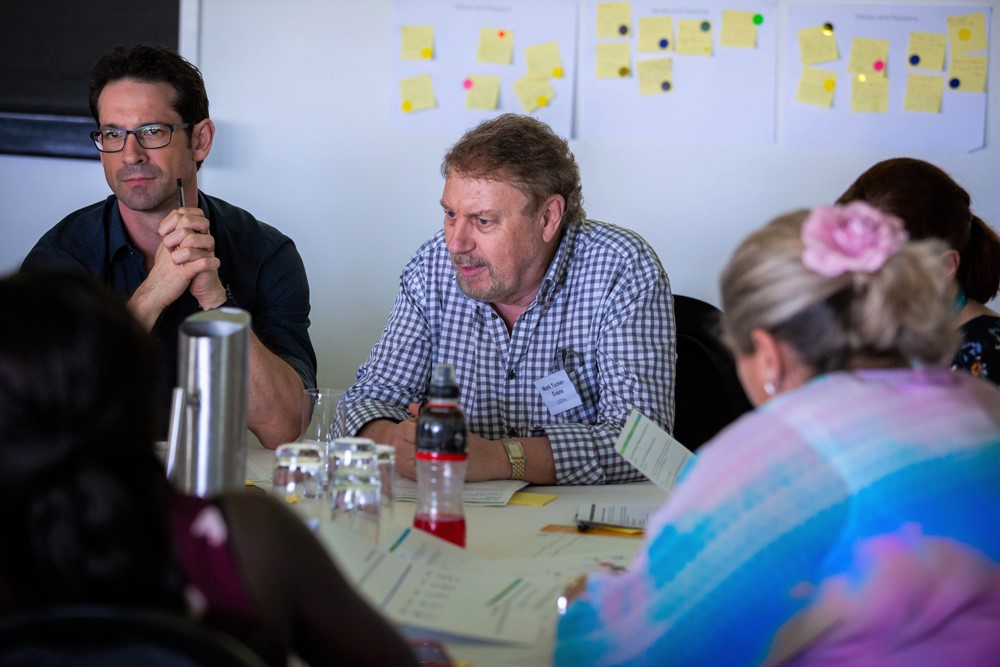TACKLING rampant ageism and presenting a vision for an intergenerational approach to ageing and services is just part of the remit of COTA Queensland, which works to advance the rights, needs, interests and futures of the state’s population as it ages. “Our work with both individuals and organisations covers a very broad area,” COTA Queensland CEO Mark Tucker-Evans says.
“We are committed to developing a system that meets the needs of Queenslanders. Our role is very much to come to ageing from a consumer perspective, so it’s not just about aged care.”
And that role has necessarily evolved over the past six decades.
COTA (Council on the Ageing) Queensland was established in the late 1950s at a meeting chaired by a representative of the Governor and with charity groups and community members in attendance.
Its goal then was to coordinate aged care in Queensland.
“Even then the aged care system was not meeting the needs of people and a body was needed to bring together the various providers to talk about what they could learn from each other and meet the needs of older Queenslanders,” Mr Tucker-Evans says.
“Work began with churches and charities, which were the main care providers at the time, but over more than 60 years COTA has evolved into a consumer organisation.”
COTA Queensland charts new course
COTA helped to establish Aged Care Queensland, which has now become Leading Age Services Australia (LASA), for service providers across residential aged care, home care and retirement living.
COTA then elected to become the voice of older people.
“But we continue to work with providers – for-profit, not-for-profit and a range of PHNs around the state – as well as hospital and health services,” Mr Tucker-Evans said.
“Unless you understand the industry you can’t really speak authoritatively with the individual. We see it as collaboration and cooperation. We come to this from the perspective of the end-users of the services.”

COTA also had a hand in the formation of organisations such as Meals on Wheels, Volunteering Queensland and with Griffith University the first University of the Third Age (U3A), which began in France in the 1970s, in Queensland
“We identify where there’s a need and then work to form an organisation to meet that need. Rather than do their work, we help them get established and then work with them,” Mr Tucker-Evans says.
It also coordinates Seniors Month for the State Government, which is held each October to promote older people and their contribution to society. The theme this year is social connections, recognising the impact of the isolation brought by COVID-19 and the need to reconnect.
COTA Queensland’s work is guided by the World Health Organisation’s Age-friendly Communities framework, which includes health and community services, work and social connections, transport and housing, urban design and even digital inclusion.
Its work might involve influencing policy on homelessness and older women in particular, who are one of the most vulnerable groups.
At other times, its priority might be a road safety forum protecting the interest of older drivers, or the effect of the Voluntary Assisted Dying laws and a push for greater palliative care and pain management.
Responding to ageism
“At the moment one of our focus areas is ageism, which is prevalent.” Mr Tucker-Evans says.
“This is particularly evident when older workers lose their jobs and find it hard to get back into the workforce, or when some retirees say they feel invisible or are made to feel a burden.
“They can be standing at shop counters and be totally ignored while younger customers are served. Ageism is real,” he says.
“Most people don’t want to think about ageing at all. We try to change the way people think about ageing by highlighting the possibilities and opportunities.
“From our point of view, it’s about how we assist people to age well, whether it be at home in their community, or in care and to influence providers to ensure that people’s rights are being recognised right to the end of their life. It’s important that we take a lifelong approach,” he says.

